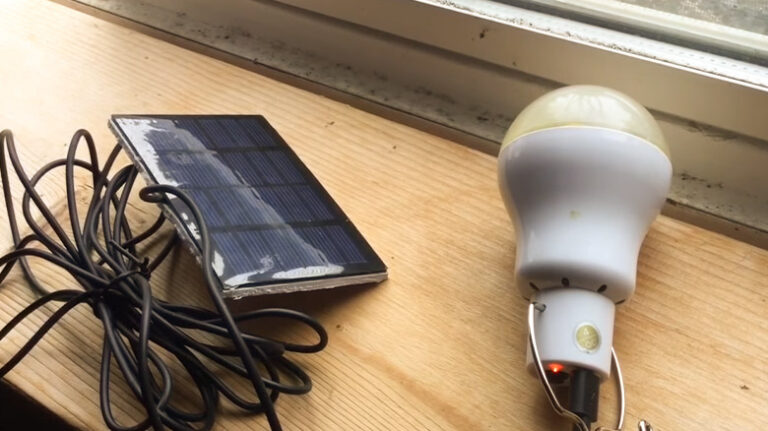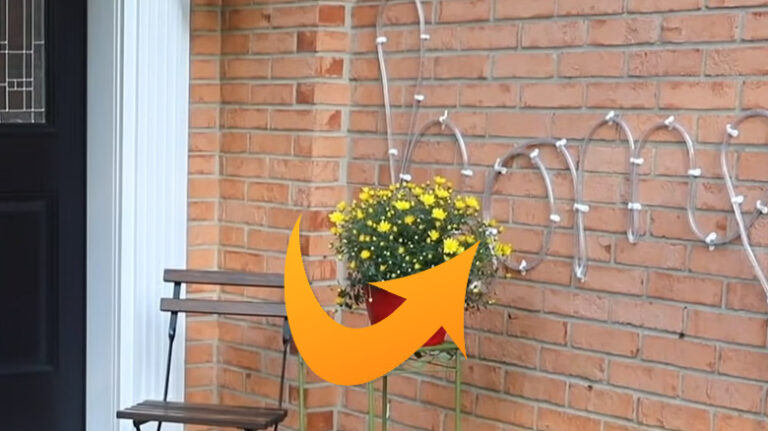[Explained] Can a 100-watt Bulb Start a Fire?
Everyone uses light bulbs in their house, office, and all living spaces. So, light bulbs are such a common device that it is very easy to take them for granted. But most people get worried about using a high-voltage light bulb in their house. They want to know if a 100-watt bulb starts a fire or not. The answer is no. Using a 100-watt bulb in their house and other living space is harmless. But they some things to consider while using a 100-watt bulb in their house.
However, if you are one of them and want to know the answer briefly, then this is the right place. I’ll help you by providing some effective and essential matters that you should know before using a 100-watt bulb in your living place.

Is It Possible to Start a Fire with A 100-Watt Bulb?
It pays off to know whether the light Bulb is perfect for you before going out to replace a busted light bulb in your appliance, office, or home. Because if you purchase the wrong one, it can mean an ill-fitted bulb that will consume higher energy. Moreover, a wrong light bulb could be a potential safety risk for your living area. More clearly, using a light bulb with a higher wattage than you are supposed to be very risky and could be a safety hazard in your living place.
Since the Bulb is a common thing that helps in our regular life, especially at night, it is necessary to know if it is safe for us. I have already mentioned that it is safe to use a 100-watt bulb in a living place, but some points you must consider.
However, most of the time, people face the hassle of purchasing an inappropriate light bulb because they purchased a bulb with higher wattage, like 100-watt, than they were supposed to. The wattage rate that you can see on the light socket states the maximum wattage.
More specifically, if you replace your old light bulb with a lower wattage, then it will not be a problem. But if you replace the light bulb with a higher wattage light bulb, like 100-wattage, it could produce overlapping. Overlapping is a hazard to your living place. Since your fixtures already have a manufacturer-recommended wattage rate, you must face intense heat if you exceed the rate.
However, overlapping leads to several issues, and the longer the overlapping occurs, the more you will put yourself at risk. Now I will describe some of the significant dangers of overlapping.
Consequences 1: Overheating
However, using a light bulb with 100 watts can lead to overheating of the light Bulb. Moreover, this temperature can melt the bulb socket and the insulation of the wires. So, you put yourself at risk of arc faults when using a 100-watt bulb than you are supposed to. Besides, it could even generate property fires.
Consequences 2: Permanent Damage to the Light Fixture
Furthermore, overlapping leads to permanent damage to the light fixture. When you use a 100-watt bulb than you are supposed to and want to fix the mistake, it may already be late. For this reason, it is crucial to ensure that the light Bulb you have replaced matches the precise wattage specification.
Consequences 3: Enclosed Fixtures
If your light bulbs get enclosed in a fixture, you must pay more attention to purchasing the appropriate light bulbs. Because the enclosed fixture increases the rate of overheating. More specifically, a fire is more likely to start when the light bulbs get enclosed fixture.
How Can You Avoid Overlamping When Using a 100-watt Bulb?
It is very simple to avoid overlapping when you use a 100-watt bulb because modern fixtures reveal their wattage rate in the assembly. If you can identify the wattage rating of your fixture and purchase a light bulb that matches what is listed, it is possible to avoid overheating. Besides, you can also purchase a light bulb below the wattage rating of your fixture. So, when buying a 100-watt bulb, you must notify your fixture wattage rating. If it allows you to buy a 100-watt bulb, then confidently purchase it. Otherwise not.
Moreover, for better safety, you can have an electrician inspect the electrical system to observe if there are any overlapping damages that they must require to be addressed. In addition, a certified electrician can provide you with the best recommendation for replacement bulbs.
Frequently Asked Questions (FAQs)
Can I Use a Bulb with High Wattage?
Yes, you can use a bulb with high wattage confidently if needed. Moreover, people like to use 100-watt, 125-watt, and 150-watt bulbs as high-wattage Bulbs. But you must also be careful about the fixture’s wattage rate to use these high-wattage bulbs.
How do 100-Watt Incandescent Bulbs Compare to LEDs?
No, comparatively, a 100-watt bulb doesn’t produce as much heat that can produce a typical LED light. Because a 100-watt GLS incandescent bulb can produce around 12% heat and 83% IR, it produces 5% visible light. At the same time, a typical LED can produce 85% heat and 15% visible light.
Can My 100-watt Bulb Heat My Room?
Yes, a 100-watt bulb can heat your room since a 100-watt bulb can generate 10 W of light. Moreover, it can generate 90W of heat also. Besides, the 90W heater can generate 90w of heat that can spread into your room.
Does a 100-Watt Bulb Light Brighter Than a 40-Watt Bulb?
No, the 40-watt light Bulb is brighter than a 100-watt light bulb. Since the wattage says to a buyer how much energy the Bulb will use, it does not say how bright it will be. So, you can say that wattage is not a perfect measurement to measure the brightness of a light bulb. But a newer light bulb certainly uses less energy.
Conclusion
It is perfect to use a 100-watt bulb in your living place, but it can become very hot and ignite a fire. Because when you use a 100-watt light bulb with a lower wattage rating fixture can lead to overheating of the light Bulb. After that, it can cause a fire.
So, when you want to use a 100-watt bulb, it is crucial to notice the wattage rating of your fixture. If the wattage rate of your fixture shows you 60 watts, you should use a bulb with 60 watts or less than that. But don’t try to use more than 60-watt. Besides, it will increase your electricity bill also.






